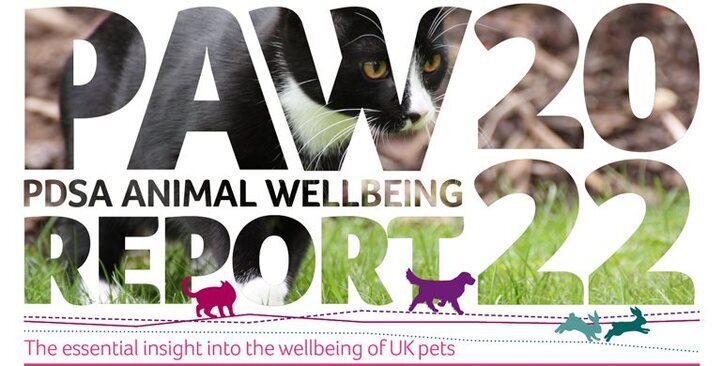There has been a significant increase in new pet owners are sourcing animals from overseas, in many cases because they are seeking pets with cosmetic surgeries that are illegal in the UK, according to the 2022 Animal Wellbeing (PAW) Report from vet charity PDSA.
The report shows a shift in pet acquisition behaviour with more owners choosing to acquire pets from abroad, as well as a drop in the number of animals adopted from rescue centres. The proportion of imported dogs has risen from 4% in 2020 to 6% (approx. 640,000 dogs) in 2022 and, of these, almost 4% (26,000 dogs) were imported for their cropped ears. As many as 5% of owners who acquired their cats from abroad (31,000 cats) did so because they wanted them to be declawed, according to the study.
At the same time, the number of animals acquired from UK rehoming centres has dropped, with the proportion of cats acquired from this source decreasing from 35% in 2020 to 27% in 2022.
Now in its twelfth year, the PAW Report, produced in conjunction with YouGov, is claimed to be the largest and most comprehensive analysis into the welfare of the UK’s pet dogs, cats and rabbits. The findings are based on a sample of 5,768 UK dog, cat and rabbit owners aged 18 and older, with fieldwork taking place between February 23 and March 31, 2022.
The report says that 24% of all owners acquired their pet in the last two years, with more than a third (36%) of all owners having no prior experience of owning that species of a pet as an adult. It also indicated that dogs owned for less than two years showed higher levels of separation anxiety, with related behaviours such as scratching, destructive behaviour, prolonged barking, crying, howling, toileting in the house affecting 360,000 dogs (14%) ,compared to those owned for more than five years (9%). This suggests that pets bought during the pandemic could be struggling to adjust to longer periods of time away from their owners, as people spend less time at home, the report author concludes.
Behavioural problems, potentially due to a lack of socialisation opportunities when young, remain a concern, with 1.6 million dogs (16%) showing signs of fear, growling or biting, and a further 1.3 million (13%) displaying these behaviours towards unfamiliar dogs. 44% of cats are showing behaviours that may be indicative of stress. 30% of cats are afraid of travelling in the car and 25% are afraid of the vet.
Owners reported feeling less lonely (84%) thanks to their pets and agreed that owning a pet improves their mental health (84%). However, while 95% felt their pet was happy, 7% stated that their pet was lonely, including a quarter (26%) of all rabbit owners. Almost half of all rabbits (46%) live alone.
PDSA Director of Veterinary Services, Richard Hooker, said: “The 2022 PDSA Animal Wellbeing (PAW) Report provides us with a timely review of the state of the welfare of the nation’s pets.
“Sadly, many of the welfare concerns that have been highlighted by the PAW Report over the last 12 years remain, demonstrating a worrying lack of owners understanding of the needs of their pets. Alongside this, we are seeing emerging issues such as behavioural problems potentially related to a lack of socialisation opportunities during the pandemic.
“Pet owners need support – it is essential that we continue to work towards understanding and overcoming the barriers owners may have to understanding and providing the care that pets require, especially at a time with so many competing voices.”
The findings will be discussed in a free webinar at 7pm on Wednesday July 6, hosted by PDSA Senior Vet Sean Wensley. To sign up, visit: www.pdsa.org.uk/paw-webinar-2022



